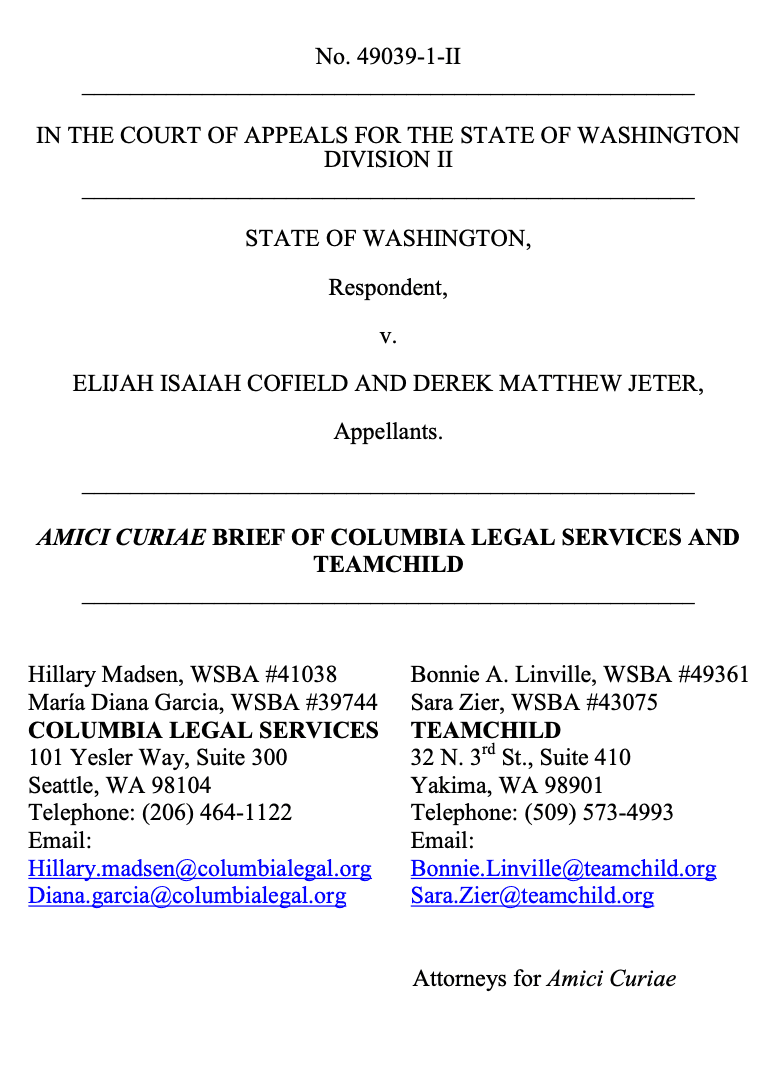
Summary of Argument
The juvenile court system has a unique role to rehabilitate, protect, and guide children and youth through successful transitions to adulthood. A key component of rehabilitation is confidentiality. The public dissemination of juvenile records creates barriers to some of the most critical components of any successful transition to adulthood: housing, education, and employment. Worse, these barriers disproportionately impact children and youth of color. To meet its express objective of removing barriers, our state legislature created a new, administrative path for juvenile record sealing. This pathway is thwarted when cut short by juvenile courts affirming Pierce County Prosecutor’s Office objections to juvenile record sealing while denying children and youth access to notice and contested hearings. The future of thousands of children and youth are at stake in evaluating how to treat an objection to administrative record sealing under RCW 13.50.260 because the choice between confidentiality or the continued public availability of juvenile records has lifelong consequences.